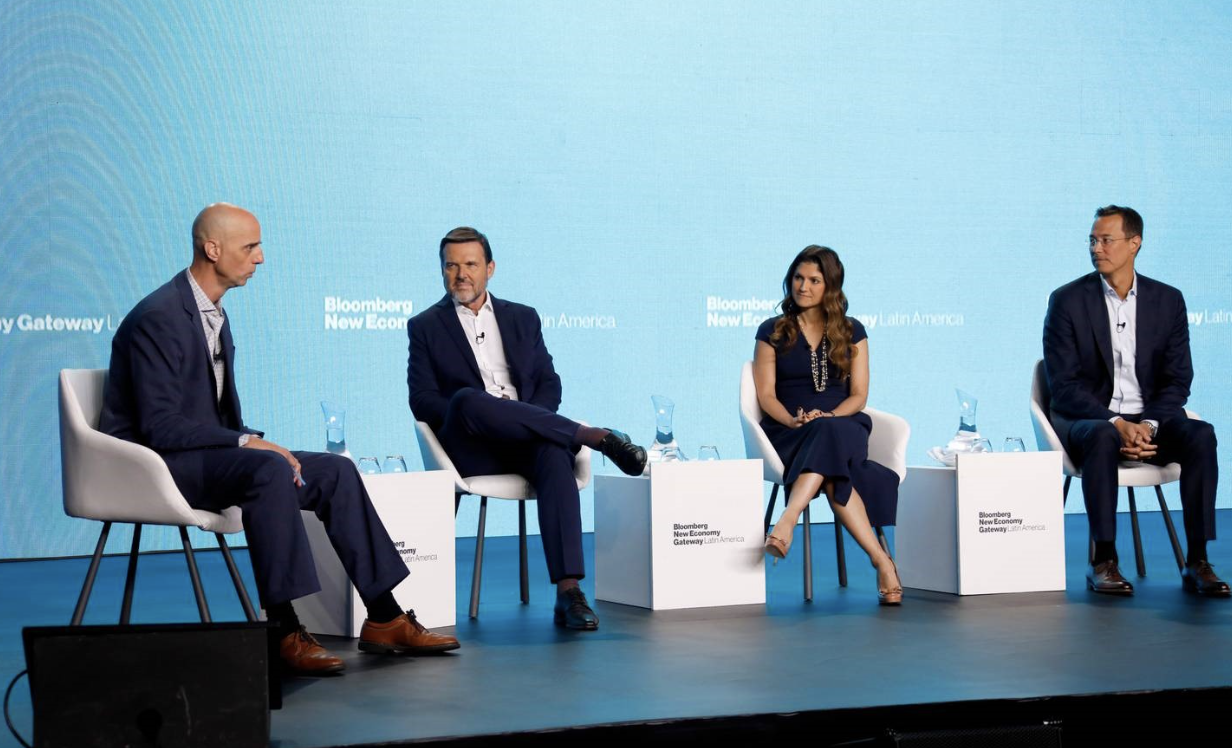
Bloomberg New Economy Gateway Latin America Concludes in Panama
On May 18 and 19, senior leaders from governments, businesses, international organizations, and not-for-profit institutions flocked to Panama City for the Bloomberg New Economy Gateway Latin America forum, the first event of its kind hosted in the Latin America region. Held under the dual themes of “Restoring Growth, Jobs, and Trust” and “Striving for Social and Environmental Progress”, the Bloomberg-sponsored summit featured two days of expert discussions on a wide range of topics relevant to the Latin America region, from the pandemic recovery to addressing mass migration and tackling the climate crisis.
Panama was selected to host this iteration of the New Economy series, which had previously never been held outside of Asia, due to its role as a global finance, travel, and logistics hub with a proven track record of convening international stakeholders to develop solutions to pressing challenges.
“Latin America plays a critical role” in addressing today’s global crises, said Michael R. Bloomberg, CEO of Bloomberg L.P., who opened the event with a virtual address. “It’s an economic engine, a dynamic center of entrepreneurship, a global trade gateway, and a critical part of our planet’s natural defense system against climate change. And Panama is at the center of it all. So let me give a big thank you to [Panama’s President Laurentino] Cortizo for hosting us and for his support in making this event a success.”
Speaking at a stakeholder dinner on the first night of the summit, President Cortizo highlighted Panama’s rapid post-pandemic economic recovery and discussed how the country is poised to capitalize on future growth opportunities. “Panama’s growth rate last year was 15.5%, and the growth forecast for this year is 7.5%”, President Cortizo told Bloomberg’s Executive Editor Stephanie Flanders. Noting that more than 180 multinational corporations have their regional headquarters in his country, President Cortizo said Panama’s “combination of connectivity, unity, and trust” makes it “the place to be” for global businesses entering the Latin American market.
On the second day of the conference, Panama’s Foreign Minister Erika Mouynes spoke on a panel with executives from Ada Health and Roche Pharmaceuticals about how Panama and the broader Latin America region is preparing for the next public health emergency. “If you tally how this region fared, it was terrible”, Mouynes said. “We have 8% of the global population, but had 28% of total deaths.” The foreign minister singled out the vaccine procurement process as a particular area for improvement, saying that while Panama quickly negotiated bilaterally with pharmaceutical companies to acquire doses, the region as a whole did not act cohesively to obtain enough supply to vaccinate its population. “It has to be better next time”, Mouynes said. “It doesn’t matter if you’re able to vaccinate your country if your neighbors are still in crisis… this is a lesson, I think, the planet has learned.”
Foreign Minister Mouynes also highlighted Panama’s leadership in addressing a renewed surge of irregular migration, with more than 130,000 migrants passing through Panama’s borders last year alone. Panama convened the first regional ministerial meeting on migration in August 2021 and held a follow-up meeting in April 2022, which resulted in a regional framework to facilitate information-sharing and ensure the equitable distribution of responsibility between countries of origin, transit, and destination. In addition to its role as a convener, Panama distinguished itself by prioritizing a humanitarian approach to the issue from the beginning. “Panama provides healthcare to every migrant that crosses our borders, and this goes beyond a general check-up – we’re now providing COVID vaccines [to migrants], and even COVID testing”, Mouynes told the Bloomberg audience.
The Bloomberg New Economy Gateway Latin America Forum also featured timely discussions on other challenges and opportunities, including the threat of global food shortages spurred by the conflict in Ukraine; Latin America’s role in fueling the clean energy transition; and strategies to conserve Latin America’s unparalleled biodiversity, among other topics.
A replay of the conference is available to watch on the Bloomberg New Economy YouTube channel.